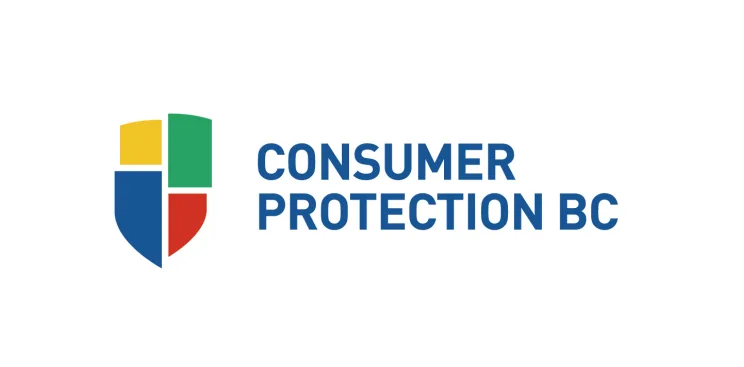
If I buy something online and it doesn't ship on time, after how many days am I entitled to cancel the order?
When you buy something online, you’re entering into a contract. On top of the rights you have when making any contract or making any purchase, you have additional rights when shopping online.
What you should know
When you buy something online, you’re making what the law calls a distance sales contract. This is a contract for goods or services that’s not entered into in person and where (in the case of goods) you don’t have the opportunity to kick the tires before buying.
Special rules apply to these contracts.
When you buy something online, the seller must give you this information before you buy:
the seller’s name, address, and telephone number (and email address, if available)
a detailed description of the goods or services, including any relevant technical or system specifications
the total price plus an itemized breakdown of the purchase price and any taxes, shipping, and other charges
the currency you must pay in
an explanation of how the goods will be shipped to you
the seller’s cancellation and return policy
For the contract to be legally binding, the seller must give you a copy. The contract must contain the information the seller was required to give you before you bought the goods or services (see above), along with the following:
your name as the consumer
the date of the contract
The seller must give you the copy within 15 days of making the contract.
If the contract is in electronic form (made over the internet), the seller must make the information available in a way that lets you keep and print it.
The seller may send you a copy of the contract by email.
When you buy something online, if the contract doesn’t include the information the seller is required to give you, you can cancel it. You have up to seven days after receiving the contract to cancel.
When you buy something online, if you don’t get a copy of the contract within 15 days, you can cancel the contract. You have up to 30 days after placing your order to cancel.
"I ordered a pair of shoes online. They were supposed to arrive in a week. The seller contacted me to say that they had sold out of that style. Two months went by, and still no shoes. Thankfully, I learned from a consumer agency that if I don’t receive what I ordered within 30 days of the estimated delivery date, I have the right to cancel the order. So I sent the seller a cancellation notice, and I got my money back."
– John, Surrey, BC

When you buy something online, if you don’t receive what you ordered within 30 days of the delivery date you can cancel the contract. You may cancel anytime before the goods or services arrive.
If your online order didn’t include a delivery date, and you don’t receive what you ordered within 30 days of the date of the contract, you may cancel the contract anytime before the goods or services are delivered.
Work out the problem
If you decide to cancel a contract for something you bought online, notify the seller in writing. You can use a notice of cancellation form provided by Consumer Protection BC:
Send the notice by email, fax, or registered mail so you have a record of when you sent it.
If you received your goods, you must return them unused and in their original condition. You’re responsible to return the unused goods within 15 days of delivery or within 15 days of cancellation, whichever is later.
The seller is responsible for paying the reasonable cost of your returning the goods.
Keep a copy of the notice of cancellation and proof of delivery (for example, a registered mail receipt).
You’re entitled to a refund within 15 days after you give notice that you’re cancelling the contract.
If you don’t receive a refund from the seller, you can ask your credit card provider to reverse the charge. The provider must do so, plus refund any interest, within two complete billing cycles or 90 days, whichever is earlier.
Contact your credit card provider with the following details and ask them to reverse the charge:
the seller’s name
the date of the purchase
the amount charged to the credit card
a description of the goods or services
the reason for cancellation
the date and method of cancellation
You may be asked to provide a copy of your notice of cancellation.
Prevent problems
When you buy something online, researching the item and seller in advance may prevent legal problems down the road.
Gather information from credible sources on the item you’re considering purchasing. Consumer Reports is an independent, non-profit source of product reviews.
See what other people are saying about the product or company by searching online for their name and the word “reviews” or “complaints.”
Watch for signs that an online seller is disreputable. For example, if a seller’s website uses "browser traps" that make it hard for you to leave the site, that’s a warning sign. Examples of browser traps are when a site disables your web browser’s “back” button or opens new windows every time you try to close one.
Before you buy an item online, it's important to know what you are agreeing to. Read the fine print on the contract. Take time to understand the return and cancellation policy, and the terms of any warranty or guarantee.
Be clear on the full cost. Factor in any shipping and handling charges. If you’re buying something from a company in another country, don’t forget to account for duty, taxes, and the exchange rate. Most items mailed to Canada are subject to the goods and services tax (GST) and duty.
Find out how long it’ll be before you receive your order.
If you can, pay for your online purchase by credit card. If you decide to cancel the contract, you can ask your credit card provider to reverse the charge. If the seller doesn’t refund your money as they are required to, the credit card provider must reverse the charge and any associated interest.
So, for example, let’s say you don’t get what you bought within 30 days and you cancel the contract before the goods arrive. If the seller doesn’t provide a refund, your credit card provider must reverse the charge if you ask them.
You don’t have this protection if you pay by cheque or money order.
Only provide your credit card information online in a secure environment. Look for https:// in the URL window. This window displays a site’s website address. If the address begins with “https,” it means the site is secure. (The “s” stands for secure.)
Who can help

Consumer Protection BC
Assists with some consumer problems and contracts. Includes online complaint form.

Better Business Bureau
They may not solve your problem, but reporting can help others avoid problems.

Competition Bureau
Deals with complaints about false or misleading advertising.
